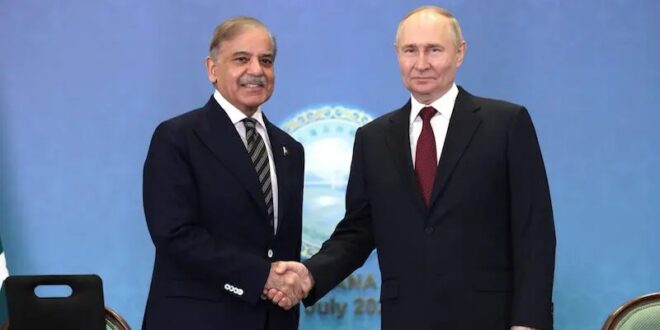As the world witnesses the sunrise of a new era marked by significant economic shifts and emerging global political dynamics, the Shanghai Cooperation Organization (SCO) is poised to play a pivotal role. Understanding the SCO’s impact extends beyond a single column or article; it requires a comprehensive analysis of its evolving influence and strategic initiatives. Led predominantly by China, the SCO aims to dismantle the concept of single-power supremacy in the global political system and establish a multipolar world order through the formation of similar organizations.
To comprehend the strategic changes under which the SCO operates, it is essential to reflect on the current global system’s perception and the foundational principles on which a new world order should be based. The post-World War II system, often seen as a successor to the colonial era, has evolved into a complex web of economic and political dominance. Instead of direct occupation, powerful countries now exert influence through economic means, ensuring that developing nations remain under their control. This strategy often involves hindering economic progress in weaker countries to maintain their dependency.
Powerful nations frequently intervene in the economic affairs of less influential countries to sustain their hegemony. This intervention disrupts industrial growth, leading to economic decline. Moreover, the political ethics that are globally accepted are often disregarded by these powerful nations, resulting in the promotion of separatism, extremism, and terrorism in countries they seek to control. Despite the clear need for change, the powers that emerged as the backbone of the global system after World War II have shown little effort to address these issues, undermining the credibility of international organizations like the United Nations.
In this context, the SCO’s concept of the “Shanghai Spirit” emerges as a beacon of hope. Championed by China, the Shanghai Spirit emphasizes mutual trust, respect for cultural diversity, and the pursuit of common development through consultation and cooperation. The SCO envisions a world system where the rights of smaller and weaker countries are not suppressed by force but are protected through strategic autonomy and mutual benefit.
The SCO’s primary objective is to safeguard the common interests of its member countries and ensure their strategic independence. This involves addressing regional security problems through cooperation and reducing the influence of external powers. China’s Global Security Initiative serves as a guiding framework for achieving these goals, encouraging member countries to resolve their differences and work together for regional stability.
For Pakistan, the SCO’s principles are particularly significant. As a member of the organization alongside India, Pakistan has the opportunity to address its longstanding issues with its neighbor through dialogue and cooperation. India’s sincere participation in the SCO’s objectives would require it to engage constructively with Pakistan to resolve bilateral disputes. At the same time, Pakistan must carefully consider its foreign relations to maximize its benefits from the SCO without alienating other strategic partners.
The commitment to the SCO’s ideals does not imply distancing from other global powers; rather, it necessitates a balanced approach to international relations. Achieving strategic autonomy and regional stability through the SCO is a challenging yet attainable goal. It requires member countries to prioritize mutual trust, respect, and cooperation over individual gains.
Pakistan is playing a pivotal role in strengthening the Shanghai Cooperation Organization (SCO) through its active participation and strategic contributions. By aligning its policies with the SCO’s principles of mutual trust, respect for sovereignty, and shared economic growth, Pakistan has emerged as a significant player in promoting regional stability and cooperation.
Pakistan’s involvement in the SCO is marked by its commitment to counter-terrorism efforts, enhancing security cooperation, and fostering economic integration among member states. The country has hosted several SCO meetings and forums, facilitating dialogue and collaboration on critical issues such as regional security, trade, and connectivity. Pakistan’s strategic location and its efforts to improve infrastructure and connectivity through projects like the China-Pakistan Economic Corridor (CPEC) have further reinforced the SCO’s objectives of regional development and integration.
Moreover, Pakistan’s diplomatic engagement within the SCO framework has helped bridge gaps between member countries, promoting a spirit of cooperation and mutual understanding. By advocating for peaceful resolution of conflicts and supporting initiatives for socio-economic development, Pakistan contributes to the SCO’s vision of a stable and prosperous region. In doing so, Pakistan not only strengthens the SCO but also enhances its own geopolitical and economic standing in the region.
In conclusion, the dawn of this new era in global politics, marked by the rise of the SCO, presents both challenges and opportunities. The SCO’s vision of a multipolar world order, based on mutual benefit and strategic autonomy, offers a promising alternative to the current system of power dynamics. By embracing the Shanghai Spirit, member countries can work together to create a more equitable and stable global political landscape, for a future where the rights and interests of all nations are respected and protected.
 Eurasia Press & News
Eurasia Press & News



